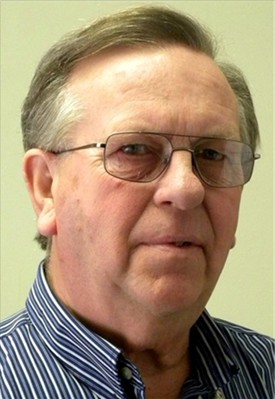Disaster Prep For The Rest Of Us
by Dave Robinson

Mapping Your Neighborhood
Originally published October 20, 2012
Lets play a little game of pretend. A major disaster has hit your neighborhood. The electricity just winked off all over town. Maybe a tornado or earthquake or hurricane-force winds. You’re pretty sure there’s damage on your neighbor’s house so you pick up the phone to call 9-1-1. The line is dead. Cell phone, “Sorry all circuits are busy try your call again later,” in that irritating, metallic voice you hate to hear. You can’t reach anyone. But you feel a responsibility to your neighbor, after she’s an elderly lady, lives alone and someone should probably go check on her. After all a big tree just fell across her house. She could be injured. You try the cell phone again. Same answer. Pick up the landline, still dead.
The reality is that during a major catastrophic event, YOU are the first responder. This is why neighborhoods all across the country are instituting a progam called ‘Mapping Your Neighborhood’. This is a simple grass-roots plan that relies on people organizing their own neighborhoods and building a network of contacts based on who lives on your block or in your immediate vicinity. Generally made up of fewer than 20 homes, a list is compiled of who lives where. Do they have natural gas or a propane tank? Is there an elderly person in the home, one who may need assistance in the event of a disaster. Are they on oxygen? How about insulin? Does anyone have a toddler or infant in the home? On the other hand, is anyone in your neighborhood equipped with a backhoe, generator, chainsaw or other item that could come in handy during a crisis. How about skills? Is anyone trained in medical care, maybe a nurse or someone who can give care to an elderly person or a young child? Does anyone have carpentry skills? Anyone skilled in counseling, maybe a minister?
All these questions will be answered at your first neighborhood meeting. What is needed is for someone to grasp the vision of seeing their neighborhood come together and get organized on a very local level. Only one meeting per year is really necessary and only then to update files. Some groups simply compile a list of their neighbors and make a basic plan while others do fundraisers to buy needed equipment like fire extinguishers or community-owned chainsaws. The extent of involvement is strictly up to the local neighborhood.
To begin simply search online for “Mapping Your Neighborhood Oregon.” You will find a booklet you can print off to get you started. If politics isn’t exactly your thing, but you want to contribute to your neighborhood, this may be just the opportunity for you. There is no federal funding, but most cities in our region have someone who is designated to assist with disaster preparedness. If that fails you may always contact me at disasterprep.dave@gmail.com
Note: Dave Robinson is Bandon's Postmaster and has worked for the postal service for 30 years. He has a background in law enforcement, served in the Air Force in Vietnam, worked nine years for the Coos County Sheriff's Department, and serves on the Myrtle Point School Board, where he lives.
additional columns by Dave Robinson

